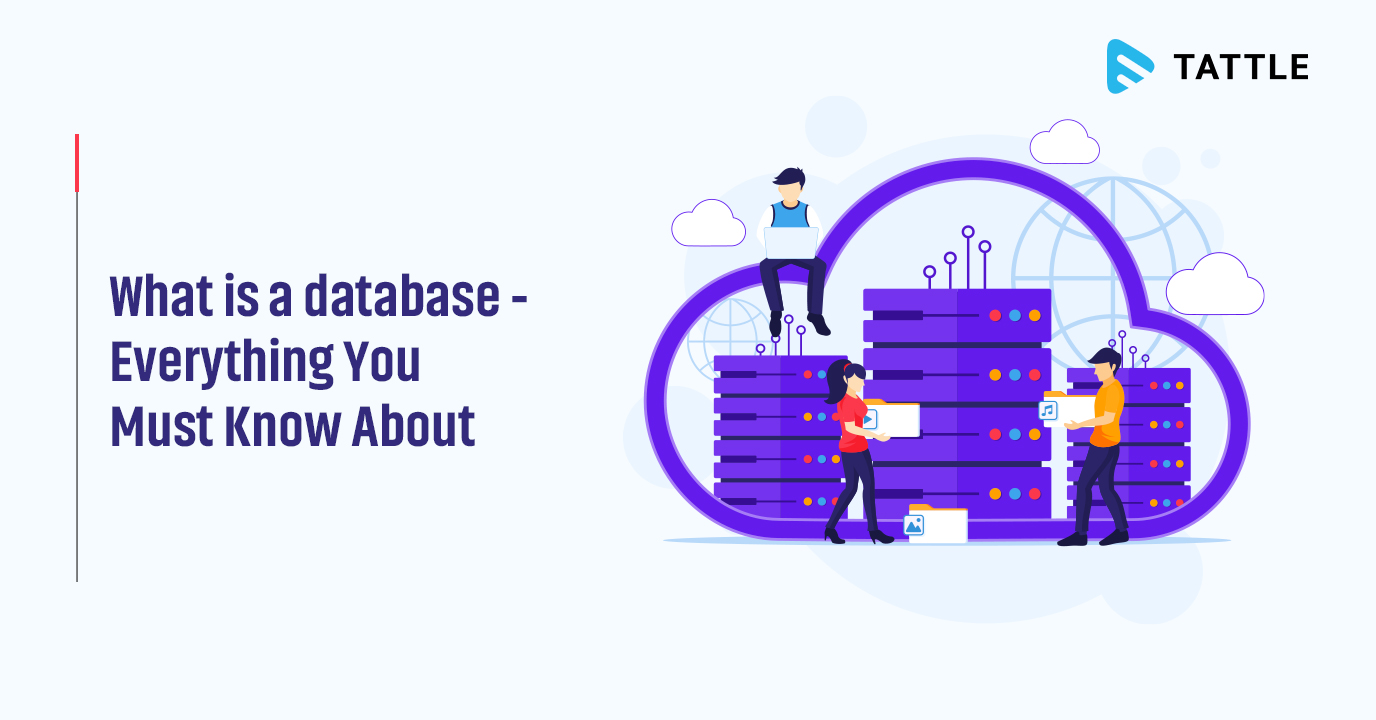Collection and proper organization of data that allows easy access of information in the future is referred to as “Database”.
What is a database? If you spend a good amount of time daily being online on the computer, you might come across databases several times a day or hour. Databases are a part of every industry, starting from banking software, scientific research to government records as well as some daily use websites such as Amazon, YouTube, Netflix and many more!
Each website you browse through a search engine, your search is powered through a huge database. In short – Databases are everywhere! It is not only limited to massive websites that host millions of users per day, even a small business or a small group of people can also use a database.
Use cases of databases are more because it gives easy access to information via a computer. If you are surrounded by such a task where you have to manage information on a daily basis, it is worth knowing what a database is and this can help you build your own database easily.
What is a database?
By definition, organized collection of information in such a way that it can be accessed later for any kind of use is called a database. It is arranged in a consistent, logical set of fundamental principles.
Databases are of different types and typically classified according to their fundamental principles:
- Hierarchical data model
- Relational data model
- Network data model
- Graph data model
Each of these data models have benefits and drawbacks depending upon the type of accomplishment you want to attain.

How do databases help create ideal workflows?
It helps in managing multiple users
Database is nothing but collection and organization of data. Organized data could be even more useful when you need to create a workflow that helps you collaborate with other members of the team. It proved to be extremely useful to support multiple people working on a similar set of information. Database ensures data consistency even if multiple users are accessing the same data.
With a database system, workflow automation tools can avoid problems like versioning and conflicting changes.
It is reliable
Errors and mistakes are common in several types of human actions. However, errors in data can cost you higher and in some of the worst cases, it can even make your data useless. Luckily database systems have a pre-defined structure along with access control and this makes it easier for you to prevent human error. It also includes a pre-built mechanism that safeguards against data loss and also helps in data restoration if you need to roll back changes.
When you are working on your workflow and want to fill up any new data with existing ones, you have to go through certain rules. This helps prevent mistakes while making changes in the workflows.
It helps avoid redundancy
As we have discussed above, the most important use of databases is to make information easily accessible for future use. And this can only happen by ensuring that each piece of data only exists in one location at a time.
This becomes even more crucial if you have a workflow which needs to be updated on a regular basis. Databases help you update information in one place and in the rest of the places it will be automatically updated.
It is prevailing
As the database is designed to easily retrieve data, it also processes data in powerful and interesting methods. It allows you to control access to viewers with granular permissions. This method ensures that only the right person can access your data.
Takeaways
The main purpose of the database is to make working with information easier while creating your own workflows. It helps several small and large business owners to manage information effectively and start automating their work process. However, the good news is that you don’t have to learn coding and programming in order to learn the fundamentals of databases.
















Add your comment